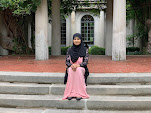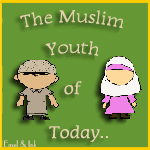Some information has been adapted from the following sources: Closed Doors and Opened Eyes: Spirituality for the Non-Fasting by Shazia Ahmad & A Muslim Day in Ramadan – Morning till Evening by Sh. Riad Quarzazi. Previously published in Sisters magazine August 2011 Issue
While others will be busy in acts of worship such as fasting, praying, reading Qur’an, etc., most women will spend a portion of Ramadan in the state of menstruation (or postnatal bleeding), leaving them unable to participate in the aforementioned activities.
It is not easy to stay positive at times like these, especially when we see those around us rushing to masaajid for taraweeh prayers, spending time in ‘itikaaf and reciting the Qur’an. This can lead us to feeling deprived of the reward of this blessed month, and often this feeling ends up decreasing our spirituality rather than increasing it.
Our menstrual cycles (or postnatal bleeding) are a part of Allah subhaana wa ta’alaa‘s creation and something that is ordained by Him. Allah subhaana wa ta’alaa tells us in the Qur’an that “He has created us in the best of molds” [At-Teen:4]. We are also told that Allah has “appointed a due proportion” [At-Talaq:2-3] for everything and that “for every matter there is an appointed time given” [Ar-Rad:38]. [1] Thus, to complain about it would be to question the Wisdom of Allah subhaana wa ta’alaa. This is not anything to feel sad or inconvenienced about, but rather it should be accepted as part of the Divine Wisdom.
This same message was conveyed to us by Ayesha radi Allahu ‘anha via the hadith of the Prophet sal Allahu alayhi wa sallam.
Ayesha narrates that, “We set out with the sole intention of performing Hajj and when we reached Sarif, my menses began. The Messenger of Allah sal Allahu alayhi wa sallam came to me while I was crying and asked, ‘What is the matter with you? Has your menses started?’ I replied, ‘Yes.’ He said, ‘This is something which Allah has destined for the daughter of Adam.’” (Al-Hakim)
Islam is the straight path that leads to the pleasure of Allah subhanaa wa ta’ala and ultimate success in the aakhirah. However, praise be to Allah, the path of Islam is broad, i.e. there is a huge variety of good deeds one can do to come closer to Allah subhaana wa ta’aala. Likewise, there are many other ways of achieving spirituality while we are on our menses (or going through postnatal bleeding) besides salaah, siyaam and ‘itikaaf. This was exemplified for us through the practice of the wife of the Prophet sal Allahu alayhi wa sallam.
Narrated Maimuna, the wife of the Prophet sal Allahu alayhi wa sallam, “During my menses, I never prayed, but used to sit on the mat beside the mosque of Allah’s Apostle…” (Bukhari)
Here are a few practical suggestions of good deeds that a Muslimah can do while she is menstruating or has postnatal bleeding.
At the time of the adhaan:
• Repeat after the adhaan
• Make du’a for the intercession of the Prophet sal Allahu alayhi wa sallam after the adhaan
• Allaahumma Rabba haathihid-da ‘watit-taammati wassalaatil-qaa’imati, ‘aati Muhammadanil-waseelata walfadheelata, wab ‘ath-hu maqaamam-mahmoodanil-lathee wa’adtahu, ['innaka laa tukhliful-mee'aad] (O Allah, Lord of this perfect call and established prayer. Grant Muhammad the intercession and favor, and raise him to the honored station You have promised him, [verily You do not neglect promises]). [Reference: Bukhari & Bayhaqi]
• Make du’a between the adhaan and iqaama. Invocation during this time is not rejected.
When you wake up:
• “Alhamdu lillaahil-lathee ‘ahyaanaa ba’da maa ‘amaatanaa wa’ilayhin-nushoor.” (Praise is to Allah Who gives us life after He has caused us to die and to Him is the return.) [Reference: Bukhari]
• “Laa ‘illaha ‘illallahu wahdahu la shareeka lahu, lahul-mulku wa lahul-hamdu, wa Huwa ‘alaa kulli shay’in Qadeer Subhaanallahi, walhamdu lillaahi, wa laa ‘ilaha ‘illallahu, wallaahu ‘akbar, wa laa hawla wa laa Quwwata ‘illaa billaahil-’Aliyyil-’Adheem, Rabbighfir lee.” (There is none worth of worship but Allah alone, Who has no partner, His is the dominion and to Him belongs all praise, and He is able to do all things. Glory is to Allah. Praise is to Allah. There is none worth of worship but Allah. Allah is the Most Great. There is no might and no power except by Allah’s leave, the Exalted, the Mighty. My Lord, forgive me.) [Reference: Bukhari]
In the morning (after fajr) / evening (before maghrib):
• “A ‘oothu billaahi minash-Shaytaanir-rajeem. Allaahu laa ‘ilaaha ‘illaa Huwal-Hayyul-Qayyoom, laa ta’khuthuhu sinatun wa laa nawm, lahu maa fis-samaawaati wa maa fil-’ardh, man thai-lathee yashfa’u ‘indahu ‘illaa bi’ithnih, ya’lamu maa bayna ‘aydeehim wa maa khalfahum, wa laa yuheetoona bishay’im-min ‘ilmihi ‘illaa bimaa shaa’a, wasi’a kursiyyuhus samaawaati wal’ardh, wa laa ya’ooduhu hifdhuhumaa, wa Huwal- ‘Aliyyul- ‘Adheem.” (I seek refuge in Allah from Satan the outcast. – Allah! There is none worthy of worship but He, the Ever Living, the One Who sustains and protects all that exists. Neither slumber nor sleep overtakes Him. To Him belongs whatever is in the heavens and whatever is on the earth. Who is he that can intercede with Him except with His Permission? He knows what happens to them in this world, and what will happen to them in the Hereafter. And they will never encompass anything of His Knowledge except that which He wills. His Throne extends over the heavens and the earth, and He feels no fatigue in guarding and preserving them. And He is the Most High, the Most Great.) [Reference: Al Hakim]
• Recite Surat’l-Ikhlaas, Surat’l-Falaq, Surat’l-Nas – 3 times each in morning and evening [Reference: Abu Dawud & Tirmidhi]
• More morning and evening adhkaar can be found here: http://www.islamawareness.net/Dua/Fortress/027.html
• Suggested Task: Read an English translation of half a juz of the Qur’an after fajr and before maghrib to complete 1 juz a day insha’Allah
During afternoon time:
• Listen to an Islamic lecture or read an Islamic book
At maghrib time:
• Help people break their fast by offering them dates and water
• Host an iftaar for family and guests
At isha time:
• Have family circle time at home and have a member of the house recite the Qur’an to the rest of the family followed by tafseer of those ayaat
Before sleeping:
• Cup your palms together, blow gently into them and recite Surat’l-Ikhlaas, Surat’l-Falaq, and Surat’l-Nas. Then pass your hands over as much of your body as you can reach, beginning with the head and then face, then the entire front of your body. Do this three times. [Reference: Bukhari]
• Recite Ayat’l-Kursi. [Reference: Bukhari]
• Recite last 2 verses of Surat’l-Baqarah. [Reference: Bukhari]
• Recite Surah Mulk. [Reference: An Nasai]
• More on “what to say before sleeping” can be found here: http://www.islamawareness.net/Dua/Fortress/028.html
Other acts that you can do
At the masjid:
• Shake hands with sisters and spread salaam at the masjid, especially engaging with newcomers.
• Sponsor iftaars at various masaajid if possible
• Volunteer for masjid clean up afterwards [1]
• Babysit during taraweeh so that the mothers (and everyone else!) can pray with khushu’ and concentration [1]
• Make a CD of beautiful Qur’an recitation and du’as and distribute it at the masjid [1]
At home:
• Have a qiyaam program for other sisters at your house – prepare iftaar and suhoor for them
• Look for new converts, those who are newly practicing or people who have lost touch with the community and invite them over for iftaar and ‘Eid [1]
• Think of Eid party ideas/gifts for family, spouse, children, neighbors and begin your preparations.
In your own time:
• Memorize ayaat of the Qur’an.
• Donate – clothes, food, toys, money etc.
• Make tawbah (repentance) and shukr (gratitude)
• Memorize Allah’s names and their meanings [1]. Use them in making personal du’a.
• Visit the sick in your area or at the hospital [1].
• Always keep your tongue moist with the dhikr of Allah subhaana wa ta’aala. Say SubhanAllah, Alhamdulillah, La ilaaha illallah, Allahu Akbar and send salaams and salawaat on the Prophet sal Allahu alayhi wa sallam while cooking, cleaning, driving, etc.
I sincerely pray that this Ramadan all of us witness an increase in our spirituality and a betterment in the relationship we have with Allah subhaana wa ta’aala. May Allah allow us to witness the blessed month of Ramadan and give us the opportunity to perform acts of ibaadah that weigh heavy on the scales on the Day of Judgment, ameen.
[1] These ideas were co-opted from Sr Shazia Ahmed’s article which can be found on SuhaibWebb.com.
Source: http://muslimmatters.org/2011/08/03/a-womens-guide-to-spirituality-in-ramadan-during-menstruation-and-postnatal-bleeding/
Subscribe to:
Post Comments (Atom)





No comments:
Post a Comment